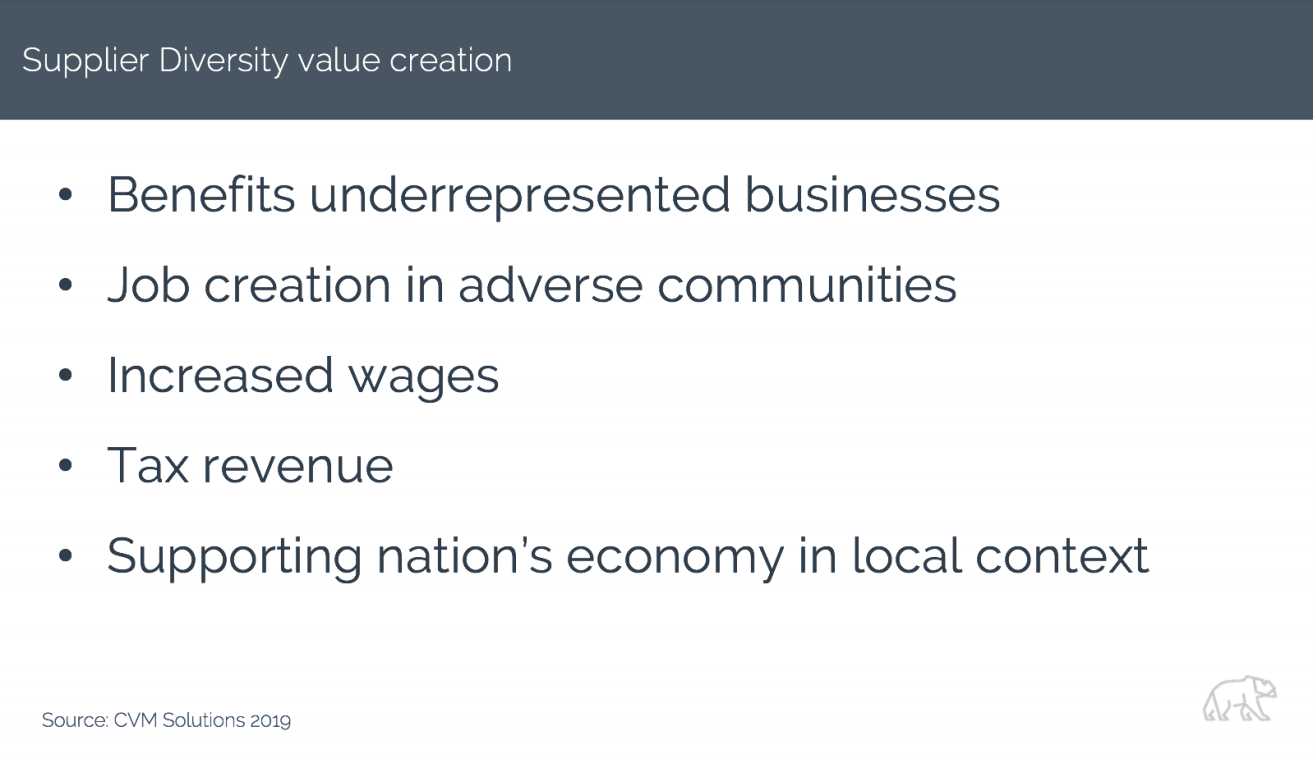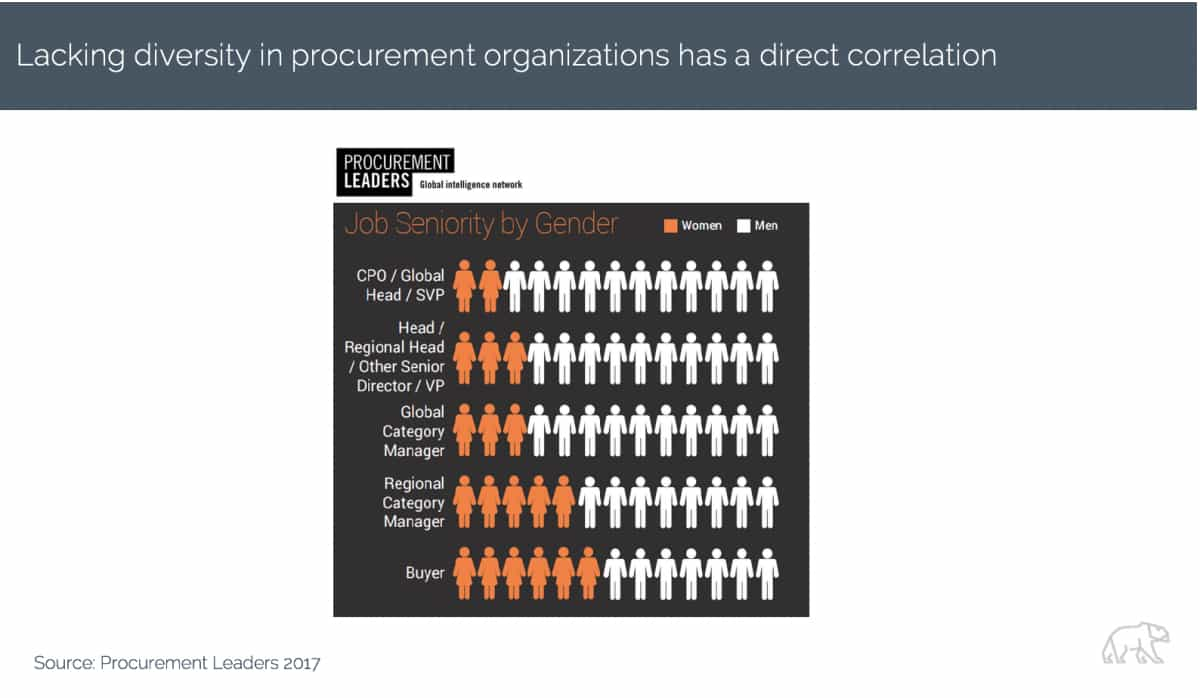Inclusive Spend
In order to ensure that supplier diversity will create real economic benefits for small and diverse businesses, procurement organizations should aim to put targets on inclusive spending.
Since the introduction of supplier diversity programs in the late 1960s, there has been a historical lack of legislation or enforcement to ensure that corporations in fact spend within their procurement in order to live up to their supplier diversity goals.
“In 1978, the US introduced a federal law requiring companies bidding for government contracts over a certain value to subcontract with diverse businesses… In the UK, the only requirement set by the government is for 33% of spending by central departments to be with SMEs by 2022. Moreover, research by Minority Supplier Development UK (MSDUK), a non-profit advocacy organization, found that only five companies in the FTSE 100 have supplier diversity programs” (Richens 2020).

Procurement holds the spend, and therefore the power!
If your procurement team aims to truly implement and adopt a supplier diversity program, then you need to have targets, govern and report upon allotted spend with diverse suppliers.
Onboarding & Governance
Classification and assessment during supplier onboarding activities are one of the key pillars to a stable and impactful supplier diversity program.
Just as you require general business information during supplier onboarding (category, site, contact, spend, employee, tax info) you should require general diversity information.
Governance for diversity in a supplier’s own organization & supply chain tiers should be regulated with predefined levels of acceptance criteria. As stated, this is important to be a set standard within onboarding activities and should be a focus in ongoing reporting activities. Just as much as you govern and inquire for ISO certifications and policies within environmental & social responsibility, you should set targets to continuously develop your suppliers’ own diversity accreditation and reporting.
Supplier data quality is a challenge in many procurement teams and could be a huge asset, but also a huge barrier within a streamlined supplier diversity program. Early and often is the mode of operating required to gather and maintain supplier data records that display diversity. “This includes … validating current certifications, and tracking bid participation and spend with diverse suppliers. This is important as it enables buyers to match their procurement needs to supplies offered by diverse businesses” (Richens 2020). Check out our webinar on 7 Steps to Automate Your Supplier Onboarding: From Manual to Magnificent.
Teach, Preach, & Incentivize
Supplier diversity requires education just as much as it requires empowerment.
Your procurement teams should be prepared to put educational programs into place that are requirements for suppliers to complete in order to learn more about the importance of diversity in a corporate and social context.
Diversity should be a core value; something you teach and preach in your own organization and within your supplier network.
In a 2019 report from CVM Solutions, State of Supplier Diversity — Diverse Suppliers it was found that 89% of diverse-owned businesses are certified as such by an appropriate agency. Certification of diverse suppliers is something that should be promoted, recognized, celebrated, and incentivized.
Make a Commitment to Diversity
We all know what needs to be done in order to develop and scale supplier diversity programs.
So, time to open the hood.
Procurement must serve as the champion of change if the adoption of supplier diversity will ever surpass the status quo. If you are committed to diversity, you can make a difference.
Supplier diversity is not just a business decision, it’s a human decision.













